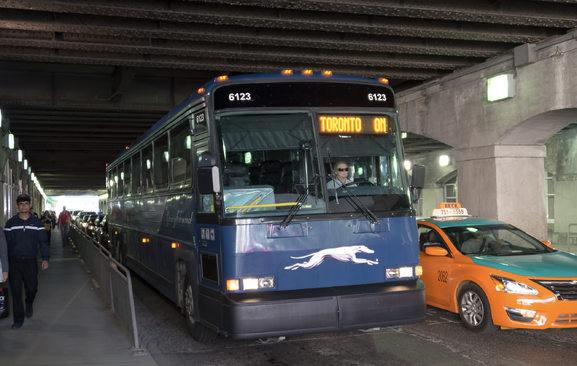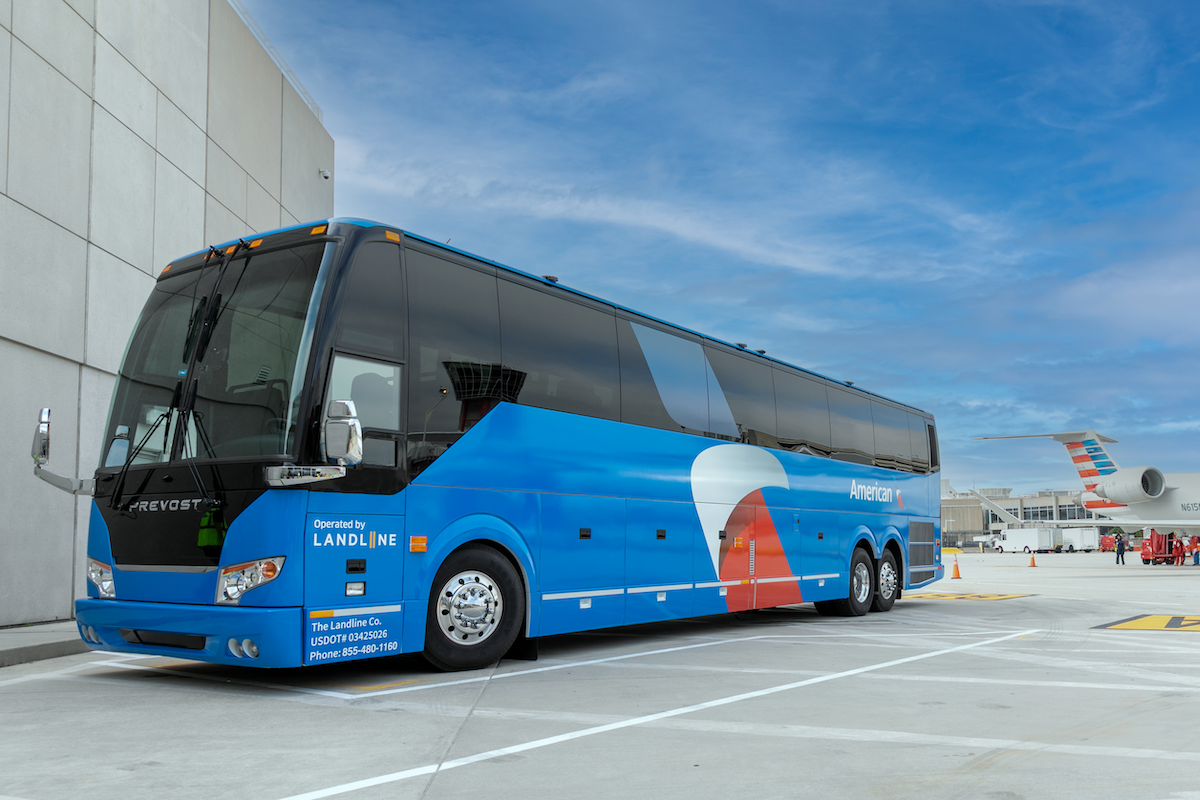Buses get lift from flight hassles

Flight and airport hassles are boosting the appeal of travel by bus. While air travel in the U.S. rose 11% over the recent Fourth of July weekend, ridership on Greyhound and FlixBus (both owned by Flix North America) soared by 63% from a year earlier. And it’s more than a backup plan: Travelers are opting for buses to save money and even time, as well as to avoid the stress of flight delays, cancellations and lost luggage. Buses can use the boost: Between 30% and 40% of small motor coach companies were driven out of business during the pandemic.
By Cate Chapman, Editor at LinkedIn News
American Airlines Buses to Philadelphia Are Moving Inside Security

Travelers on most American Airlines “flights” operated by Landline on buses no longer need to clear security in Philadelphia during their connections. That one change could make a big difference in boosting the popularity of multimodal airline connections in the U.S. as smaller airports lose air service at historic rates.
Flights from Allentown, Pa., and Atlantic City, N.J., on Landline buses began departing those airports and arriving inside security — or airside, in airline parlance — in Philadelphia Tuesday, American and Landline unveiled. Flights departing Lancaster, Pa., continue to depart that airport and arrive in Philadelphia outside security, or landside. Buses departing Philadelphia already leave from a gate on Concourse E.
The need to clear security at a connecting airport is one of the biggest unknowns for passengers on Landline-operated flights. In fact, how long it takes to clear security vexes travelers everywhere, even when their connection is protected as they are for Landline passengers transferring to an American flight. Removing that added concern makes the experience smoother, and potentially boosts its attractiveness to more travelers.
“We are excited to offer customers a more convenient experience to clear security at their local airport and arrive airside at our Philadelphia hub with a seamless connection to our global network,” said Gary Tomasulo, American Vice President of Corporate Security.
Improving multimodal airline connections comes at a critical time for the industry. Air service to small cities around the U.S. is dwindling as operating costs rise and a captain shortage limits regional airlines. And the industry as a whole is attempting to cut its carbon emissions with a goal of net-zero by 2050. Buses can be driven by staff with far less training than pilots, and produce far fewer emissions than planes — especially on short routes under 200 miles where they are time competitive with flying.
“This really cements us as the best option under 50 seats for shorthaul markets,” Landline CEO David Sunde told Airline Weekly. He described the move airside in Allentown and Atlantic City as a “huge win for American customers” in both markets.
The air traffic controller shortage in the U.S. could add to the appeal of bus-operated flights. United Airlines CEO Scott Kirby said at a Politico event Tuesday that the carrier needs to “reduce” or “change” its schedule in Newark due to physical constraints at the airport and air traffic control limits during bad weather. The carrier already partners with Landline in Denver, and on flights to Allentown from Newark.
Landline targets sub-200 mile routes with its three airline partners: Sun Country Airlines at Minneapolis-St. Paul since 2019, United since 2021, and American since last year. Of the routes it operates, only one — American’s 55-mile hop between Philadelphia and Allentown — was previously flown with an aircraft.
Buses for multimodal connections are not only growing in popularity in the U.S. Finnair replaced its flights between Helsinki and both Tampere and Turku in Finland with buses in May. Elsewhere in Europe, airlines are working to increase connections with trains and some, for example at Air France and KLM, are even looking at reducing or replacing flights on select routes where high-speed train options exist.
American and Landline now operate what may be the only buses anywhere that transport paying passengers airside between two airports. And that’s no small feat. American and Landline said bus-operated flights would arrive and depart inside security when they launched last year. But, for various reasons, implementation was delayed as they awaited approval from the U.S. Transportation Security Administration. It was only within the past month that they the TSA signed off and testing could begin, Sunde said.
“There are seals on all the doors, all the windows — every single one,” Sunde explained about the precautions needed to keep TSA-screened passengers sterile, as they say, aboard buses. “Just a lot goes into maintaining the sterility of that process.”
In the event of an emergency, Sunde added, the seals do not inhibit passenger egress from Landline’s buses.
Landline does expect “some volume uptick” in passenger numbers on its American buses with the move inside security in Allentown and Atlantic City, Sunde said. That increase, however, will likely depend on more people becoming familiar with and understanding the process, he added. For example, travelers will see no difference in the booking process or receive any other notification of the operational change.
Sunde declined to comment on what percentage of seats Landline fills on its buses at American, and deferred to the airline. The buses operate with 35 seats on each flight.
Philadelphia Airport CEO Atif Saeed said Landline’s buses have carried “thousands” of connecting passengers to and from the airport since the service launched last year. However, neither airport nor Federal Aviation Administration data show passenger numbers for flights operated by buses.
Sunde also shied away from commenting on when Landline’s buses at Sun Country or United would also operate inside security in both directions soon. Both operations already leave from regular airside gates at their respective hubs in Minneapolis-St. Paul, Denver, and Newark. Sunde repeatedly emphasized that, for now, the shift is an improvement for American customers.
BY: Edward Russell, AW Daily





